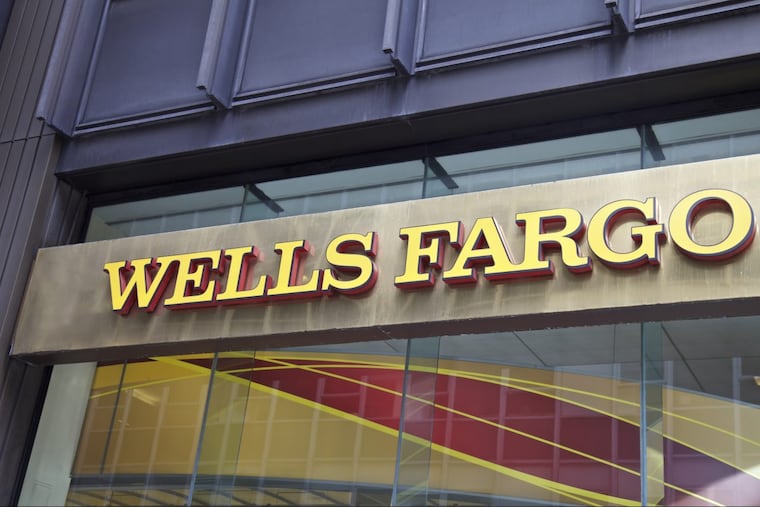Loan rates poised to rise as taxes fall for Philly's banks under new tax law
Most financial companies will enjoy markedly lower taxes from the new tax law, including Bank of America, PNC and local M&T Bank.

The Federal Reserve keeps jacking up the federal funds rate. That means higher rates are on the way for business loans, consumer credit cards — and bank deposits (remember those?).
Home purchase and car loan rates will also rise, but probably not as much as credit cards, with 30-year fixed-rate mortgages dipping below their recent average of about 4 percent before ending 2018 around 4.5 percent, predicts Greg McBride, chief financial analyst at New York-based Bankrate.com. McBride sees the average credit card rate by the end of 2018 above 17 percent, and home equity lines of credit at nearly 6 percent.
The Trump tax cut "should provide a near-term lift to economic growth" and make business spending more attractive, even with higher interest rates, says Jason Pride, director of investment strategy for $37 billion-asset Glenmede Trust Co. in Philadelphia. If the economy continues to grow faster than expected, the Fed could end up raising rates faster, he added.
Comcast Corp., the largest company based in Philadelphia, should see its corporate tax rate drop to around 21 percent, from 35 percent last year, according to a report Tuesday by analyst Amy Yong of Macquarie Capital (USA). That means Comcast could keep an extra $1.5 billion this year in profits. Yong says Comcast stock is likely cheap at its current price, given its rising profits.
More expensive money should also mean companies and local governments will have to pay investors more to borrow money. Higher bond yields tend to draw investors away from the hedge-fund and private-equity investments that public pension funds and other institutional investors bought in the 2000s and early 2010s, when bond rates were lowest. As rates rise, "alternatives" are less attractive, Pride added.
But stock and bond prices are already high. So the Fed's "modest rate increases" will still likely leave investors looking for alternatives, such as "private, floating-rate credit, which should perform well" as rates go up, said Michael Gerber, executive vice president at $20 billion-asset FS Investments in Philadelphia.
Bankers expect that the Fed will raise the key rate, from the current 1.5 percent, at least three times this year, just as it did in 2017. That compares with once each in 2015 and 2014. The rate was flat at a rock-bottom 0.25 percent from 2009 to 2014, when the Fed hoped that cheap money would help keep the economy from falling into recession again.
As to bank savings rates, "the best savings accounts will yield about 2.3 percent, and the top 5-year certificates of deposit should be just over 3 percent," though averages will be less, according to BankRate's McBride. "It's really important to shop around."
Banks will enjoy "significantly" higher profits thanks to the federal corporate income tax cuts, notes analyst Frederick Cannon, in a Tuesday report to clients of investment bank Keefe Bruyette & Woods in New York. Bank stocks rose sharply last fall, indicating that the "benefit of the tax bill was factored into the market prior to its final passage" in December, Cannon added.
Bank of America Corp. should collect an additional $2 billion, as its tax rate drops from around 32 percent to below 20 percent, according to Cannon. Rival Wells Fargo should see taxes drop to 20 percent, from 33 percent; Goldman Sachs, to 17 from 28; PNC, to 17 from 26; Citizens Bank of Pennsylvania owner Citizens Financial Group, to 21 from 33. Among Philadelphia-area lenders: M&T Bank's tax rate would drop to 24 percent from 35 percent; WSFS, to 23 from 35; Univest, to 18 from 27; Bryn Mawr Trust, to 21 from 33; Beneficial, to 23 from 36. And, Vernon Hill's First Republic Bank, to 18 percent, from 25 percent; Jay Sidhu's Customers Bank, to 25 from 38.
Among investment companies, Cannon estimates Oaks, Montgomery County-based SEI Investments' tax rate will fall to 23 percent, from last year's 37 percent; Nasdaq, whose futures and options business is based in Philadelphia, to 24, from 31.
Lincoln, the Radnor-based life insurer and annuity sales company, should see taxes fall to around 16 percent, from 23 percent. PHH, the Cherry Hill-based home lender, to 24, from 38; CBRE, the national commercial-properties broker and investor, to 22 from 29; Fannie Mae, the home-loan finance giant, to 22, from 34; Sallie Mae, the Wilmington-based student lender, to 31 from 39.
Most, but not all, financial companies should enjoy tax relief. Chubb, the New York-based global property insurer with employment centers in Philadelphia and Warren, N.J., will see little change in its rate of around 16 percent, Cannon estimates. Analysts have predicted that some insurers who in the past suffered storm losses, merger write-offs and other big charges will lose by not being able to write as much of the prior losses down against future profits.
What's less clear is whether financial companies will plow their new profits into new loans and other sales, or give it to investors in the form of share buybacks and higher dividends.